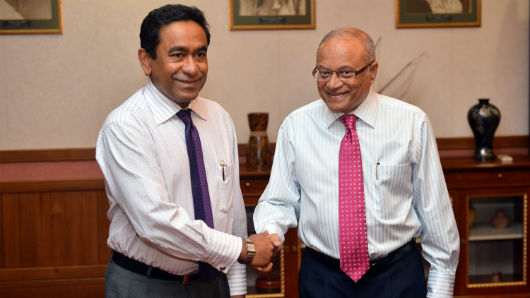State broadcaster provokes furore over article ‘defaming’ Gayoom
Public Service Media has taken down, after sustained criticism, an online article accusing former President Maumoon Abdul Gayoom of being anti-Islamic

13 Aug 2016, 09:00
Public Service Media, the Maldives’ state broadcaster has taken down an online article accusing former President Maumoon Abdul Gayoom of being anti-Islamic.
PSM triggered a storm of criticism as it posted the article, just a day after the ruling Progressive Party of the Maldives approved a widely condemned law criminalizing defamation.
Gayoom, who is locked in a battle with his half-brother, current President Abdulla Yameen, for the control of PPM, had appealed to MPs to reject the bill.
“Integrity and courage are crucial for success in all political endeavors. If we allow fear to restrict our actions we will never deliver,” he said in a tweet soon after losing the vote. Only four ruling coalition MPs, including Gayoom’s son voted No. Three others did not attend the vote.
Become a member
Get full access to our archive and personalise your experience.
Already a member?
Discussion
No comments yet. Be the first to share your thoughts!
No comments yet. Be the first to join the conversation!
Join the Conversation
Sign in to share your thoughts under an alias and take part in the discussion. Independent journalism thrives on open, respectful debate — your voice matters.




